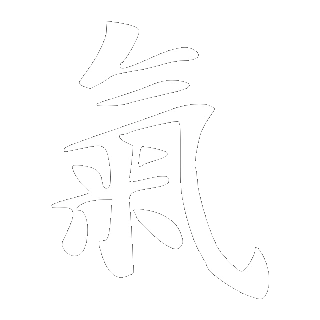Answers To Common Questions About Qigong
Qigong is an ancient Chinese practice that involves the cultivation of life energy or "qi" through various exercises, breathing techniques, and meditations. With roots dating back more than 4,000 years, it is one of the oldest healing practices and continues to be widely practiced today due to its numerous physical, emotional, and spiritual benefits.
In this article, we will answer some of the most commonly asked questions about qigong, including its history, benefits, and how to get started.
1. What is the history of qigong?
Qigong has been around for more than 4,000 years, with roots in ancient Chinese medicine and Taoist philosophy. The practice evolved into a more structured system during the Ming Dynasty (1368-1644), when qigong masters developed a series of movements, breathing techniques, and meditations that were used to cultivate and manipulate qi energy.
The practice continued to evolve over the centuries, and in the 1950s the Chinese government began to promote it as a form of exercise and healing. Today, qigong is widely practiced in China and around the world for its physical, emotional, and spiritual benefits.
2. What are the benefits of qigong?
Qigong has been shown to have numerous physical, emotional, and spiritual benefits. Some of the most commonly reported benefits include:
- Improved balance and coordination
- Increased flexibility and range of motion
- Reduced stress and anxiety
- Improved immune system function
- Enhanced cardiovascular health
- Improved digestion and circulation
- Increased energy and vitality
- Improved mental clarity and focus
- Increased self-awareness and mindfulness
- Greater sense of well-being and inner peace
These benefits have been studied and documented in numerous scientific studies, and continue to be a source of interest for researchers around the world.
3. How does qigong work?
Qigong works by manipulating the body's qi energy, which is believed to flow through a network of meridians or energy channels in the body. By practicing specific exercises, movements, and meditations, qigong practitioners are able to cultivate and direct this energy for various purposes, such as healing, relaxation, and spiritual growth.
The exact mechanisms of how qigong works are not fully understood, but some theories suggest that it may have a balancing effect on the body's autonomic nervous system, which controls many unconscious functions such as heart rate, respiration, and digestion. It may also work on a subtle energetic level to clear blockages and increase the flow of qi throughout the body.
4. Is qigong a form of meditation?
Qigong can be considered a form of moving meditation, as it involves a combination of physical movements, breathing techniques, and mental focus. However, qigong differs from traditional seated meditation in that it involves movements that are designed to cultivate and manipulate qi energy, rather than a focus on stillness and mindfulness.
Some qigong practices may also involve seated or standing meditations that focus on calming the mind and cultivating inner peace. In this sense, qigong can be seen as a complementary practice to traditional seated meditation.
5. What are the different types of qigong?
There are many different types of qigong, each with its own unique set of movements, breathing techniques, and meditations. Some of the most commonly practiced types include:
- Health qigong: This type of qigong is focused on promoting physical health and wellbeing through a series of gentle movements and breathing exercises.
- Medical qigong: Medical qigong is a form of energy healing that involves the manipulation of qi energy to treat specific health conditions.
- Taoist qigong: Taoist qigong is rooted in Taoist philosophy and is focused on cultivating inner peace, longevity, and spiritual growth.
- Martial qigong: This type of qigong is practiced by martial artists and is designed to enhance martial arts skills and protect against injury.
6. Can qigong be practiced by anyone?
Yes, qigong can be practiced by anyone regardless of age, fitness level, or prior experience. Many qigong exercises and movements are gentle and low impact, making it a safe and accessible form of exercise for people of all ages and abilities.
However, it is always recommended to consult with a healthcare professional before beginning any new exercise program, especially if you have any pre-existing health conditions or concerns.
7. How long does it take to see results from practicing qigong?
The length of time it takes to see results from practicing qigong can vary depending on the individual and their specific goals. Some people may experience immediate benefits such as increased energy and relaxation, while others may take longer to see more significant improvements in their health and wellbeing.
Consistency is key when practicing qigong, and it is recommended to incorporate it into your daily routine for maximum benefits. Regular practice can help to build strength, flexibility, and balance, as well as improve mental clarity and emotional wellbeing.
8. How do I get started with qigong?
Getting started with qigong is easy and can be done in a few simple steps:
-
Find a qualified teacher: It is recommended to find a qualified qigong teacher who can guide you through the various movements and meditations.
-
Wear comfortable clothing: Qigong movements are often gentle and flowing, so it's best to wear comfortable clothing that allows for easy movement.
-
Start with basic exercises: Beginners should start with basic qigong exercises that are easy to learn and require no prior experience.
-
Practice regularly: Consistency is key when practicing qigong, so it's important to make it a part of your daily routine.
Overall, qigong is an ancient practice that offers numerous physical, emotional, and spiritual benefits. Whether you're looking to improve your health and vitality or cultivate inner peace and mindfulness, qigong is a powerful tool for transforming your life.

